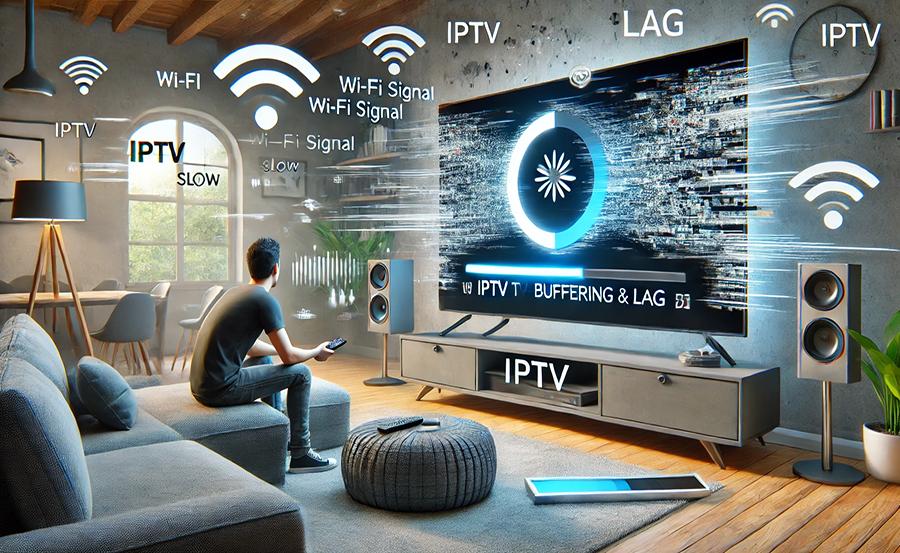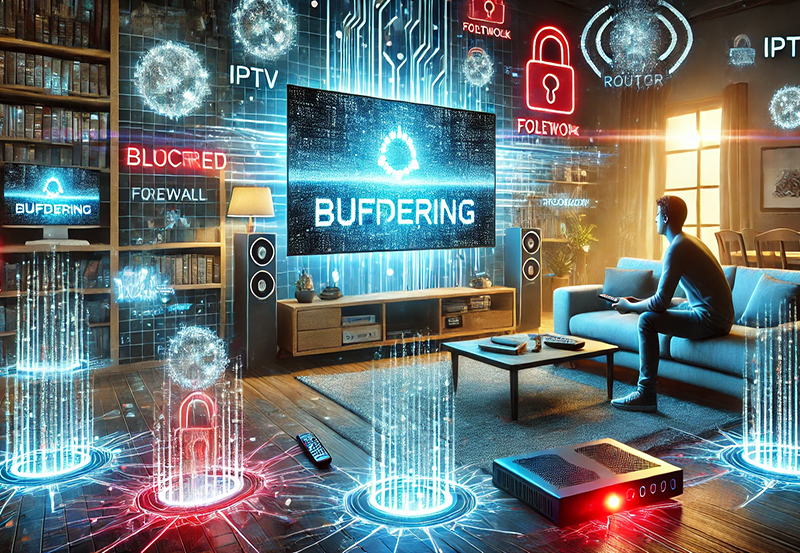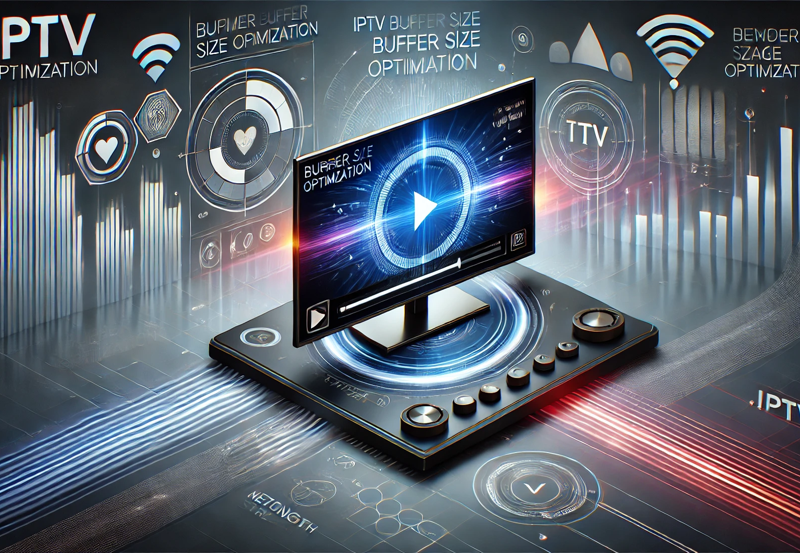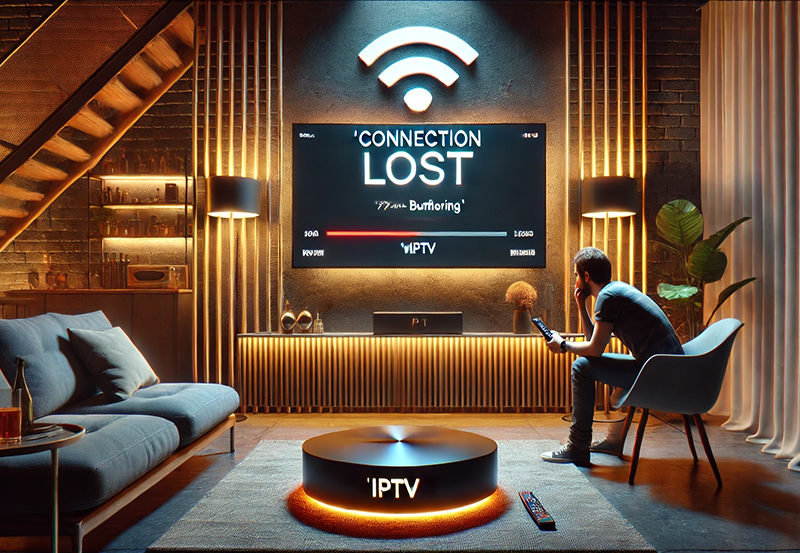In today’s digital age, IPTV has become a staple for many viewers, offering the luxury of watching TV through internet protocols rather than traditional channels. Yet, nothing is more frustrating than experiencing lag just as the game-winning goal is about to be scored. If you’ve been struggling with your IPTV service, fear not—this guide will arm you with all you need to tackle those lag issues expertly.
Understanding IPTV and Its Benefits
IPTV, or Internet Protocol Television, revolutionizes how audiences consume content. By streaming media over the internet, IPTV users can access a wide spectrum of channels and on-demand content. The convenience of IPTV for sports streaming is unparalleled for sports enthusiasts, providing access to games and matches from across the globe at the comfort of your home.
How IPTV Works
Unlike conventional satellite or cable transmissions, IPTV streams data over the internet. The process involves sending audiovisual signals via the internet and decoding them on your specific device, allowing for a personalized viewer experience far removed from scheduled TV. Buy 1 Year IPTV Subscription and Enjoy Unlimited Content
Common IPTV Lag Issues
Experiencing delays or lags while streaming IPTV can be attributed to numerous factors. Understanding these can be the first step towards effective problem-solving. Here’s what typically causes IPTV lag:
- Internet Speed
- Network Congestion
- Wi-Fi Interference
- Device Overload
- Server Issues
Internet Speed: A Key Component
One of the primary culprits in laggy streaming is insufficient internet speed. A minimum of 5 Mbps is generally required for standard definition streaming, with higher speeds necessary for HD content. Thus, ensuring your internet meets these speeds is essential.
Steps to Reduce IPTV Lag
Testing and Boosting Your Internet Speed
Start by evaluating your internet speed using reliable online speed tests. Should your connection fall short, consider these measures to enhance speed:
- Contact your ISP for a faster plan.
- Invest in high-quality routers.
- Update router firmware regularly.
Minimizing Wi-Fi Network Congestion
Multiple devices on the same network can lead to congestion. Reducing the number of devices during your streaming hours can significantly improve performance. Additionally, moving your setup closer to the router is advisable.
Optimizing Your Router
Router placement impacts signal strength. Position it centrally within your home, elevated, and free from obstructions. Furthermore, opting for dual-band routers that offer 5 GHz networks can minimize interference from typical household gadgets.
Addressing Wi-Fi Interference
Wi-Fi signals face interference from physical barriers like walls and electrical appliances. Mitigating this by repositioning devices and choosing a clear channel on your router’s settings can help keep signal interference at bay.
Advanced Troubleshooting Techniques
Device and App Optimization
Updating your IPTV application regularly ensures access to the latest features and stability improvements. Additionally, restarting your devices periodically helps in clearing unwanted cache that may be causing delays.
Server Evaluations
Sometimes the issue isn’t at your end. Checking your IPTV provider’s service status can shed light on server-related issues. If problems are frequent, evaluating alternative providers might be necessary.
Purchasing the Right IPTV Service
Choosing a high-quality IPTV service is paramount. Consider ease of installation, channel offerings, customer service, and pricing. The mantra should be to master your IPTV entertainment with a balance of value and functionality.
How to Install IPTV Properly
The installation process may seem daunting, but with clear instructions, it is relatively straightforward. Ensure you’re armed with a compatible device, download the necessary app, and follow the activation steps provided by your service provider.
Installation Tips
- Verify device compatibility with the provider.
- Use official links for downloads to avoid malware.
- Keep account information secure and private.
Conclusion: Enhancing Your IPTV Experience
As with any technological service, IPTV requires a blend of the right tools and knowledge to function optimally. While understanding and resolving lag issues may initially feel complex, the experience of seamless, uninterrupted streaming is immensely rewarding. Through attentive management of your Wi-Fi setup, choice of IPTV provider, and consistent upkeep of devices, you can transform your viewing pleasure.
Frequently Asked Questions

What is the ideal internet speed for IPTV?
For standard definition content, at least 5 Mbps is recommended. However, 10-15 Mbps ensures smoother operations, especially for HD streaming.
Why does my IPTV buffer during peak hours?
Peak hours often coincide with higher network congestion. Reducing the number of connected devices or opting for premium services with better bandwidth can help.
How often should I update my IPTV application?
Regular updates are essential. It’s good practice to check monthly or set your device to update apps automatically.
Are VPNs necessary for IPTV?
While not mandatory, VPNs can enhance privacy, avoiding ISP throttling, and provide access to geo-restricted content.
Can I use IPTV on multiple devices simultaneously?
It depends on your service plan. Some providers allow multiple streams, while others may require an upgrade for multi-device access.
Accessing Global Content: IPTV vs. Cable TV





